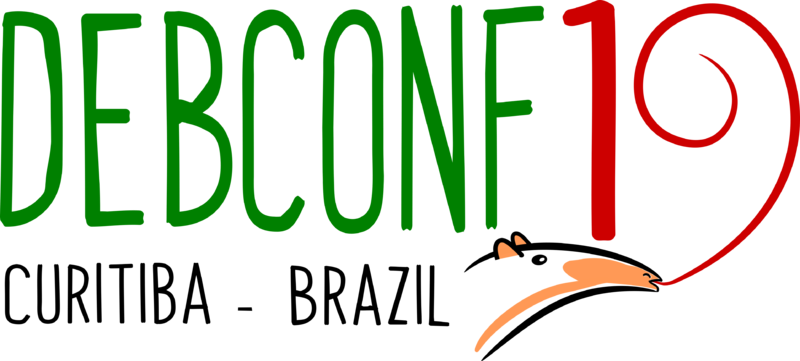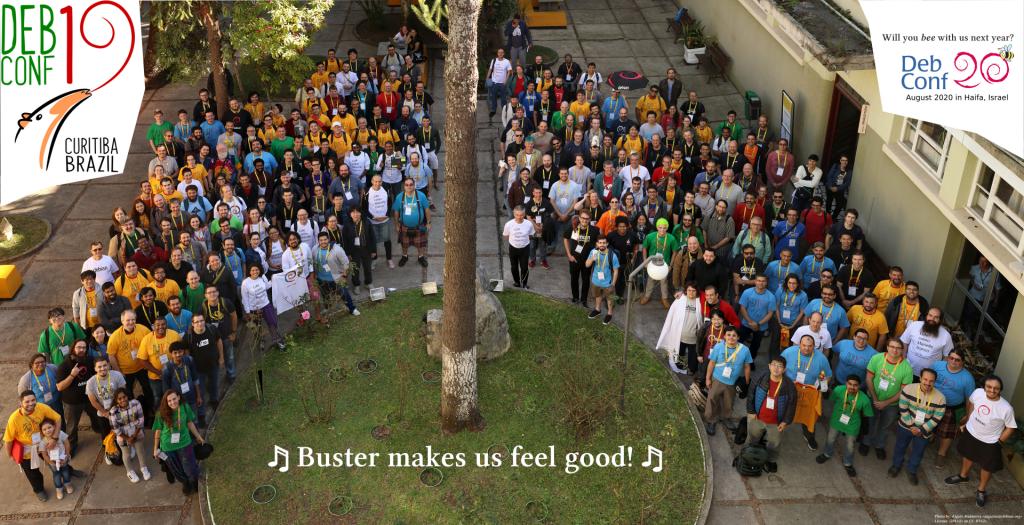salsa.debian.org: Postmortem of failed Docker registry move
On Tue 20 August 2019 with tags salsa postmortemWritten by Bastian Blank
The Salsa admin team provides the following report about the failed migration of the Docker container registry. The Docker container registry stores Docker images, which are for example used in the Salsa CI toolset. This migration would have moved all data off to Google Cloud Storage (GCS) and would have lowered the used file system space on Debian systems significantly.
The Docker container registry is part of the Docker distribution toolset. This system supports multiple backends for file storage: local, Amazon Simple Storage Service (Amazon S3) and Google Cloud Storage (GCS). As Salsa already uses GCS for data storage, the Salsa admin team decided to move all the Docker registry data off to GCS too.
Migration and rollback
On 2019-08-06 the migration process was started. The migration itself went fine, although it took a bit longer than anticipated. However, as not all parts of the migration had been properly tested, a test of the garbage collection triggered a bug in the software.
On 2019-08-10 the Salsa admins started to see problems with garbage collection. The job running it timed out after one hour. Within this timeframe it not even managed to collect information about all used layers to see what it can cleanup. A source code analysis showed that this design flaw can't be fixed.
On 2019-08-13 the change was rolled back to storing data on the file system.
Docker registry data storage
The Docker registry stores all of the data sans indexing or reverse references in a file system-like structure comprised of 4 separate types of information: Manifests of images and contents, tags for the manifests, deduplicaed layers (or blobs) which store the actual data, and lastly links which show which deduplicated blogs belong to their respective images, all of this does not allow for easy searching within the data.
The file system structure is built as append-only which allows for adding blobs and manifests, addition, modification, or deletion of tags. However cleanup of items other than tags is not achievable within the maintenance tools.
There is a garbage collection process which can be used to clean up unreferenced blobs, however according to the documentation the process can only be used while the registry is set to read-only and unfortunately it cannot be used to clean up unused links.
Docker registry garbage collection on external storage
For the garbage collection the registry tool needs to read a lot of information as there is no indexing of the data. The tool connects to the storage medium and proceeds to download … everything, every single manifest and information about the referenced blobs, which now takes up over 1 second to process a single manifest. This process will take up a significant amount of time, which in the current configuration of external storage would make the clean up nearly impossible.
Leasons learned
The Docker registry is a data storage tool that can only properly be used in append-only mode. If you never cleanup, it works well.
As soon as you want to actually remove data, it goes bad. For Salsa clean up of old data is actually a necessity, as the registry currently grows about 20GB per day.
Next steps
Sadly there is not much that can be done using the existing Docker container registry. Maybe GitLab or someone else would like to contribute a new implementation of a Docker registry, either integrated into GitLab itself or stand-alone?
Debian celebrates 26 years, Happy DebianDay!
On Fri 16 August 2019 with tags debian project anniversary DebianDayWritten by Donald Norwood
26 years ago today in a single post to the comp.os.linux.development newsgroup, Ian Murdock announced the completion of a brand new Linux release named Debian.
Since that day we’ve been into outer space, typed over 1,288,688,830 lines of code, spawned over 300 derivatives, were enhanced with 6,155 known contributors, and filed over 975,619 bug reports.
We are home to a community of thousands of users around the globe, we gather to host our annual Debian Developers Conference DebConf which spans the world in a different country each year, and of course today's many DebianDay celebrations held around the world.
It's not too late to throw an impromptu DebianDay celebration or to go and join one of the many celebrations already underway.
As we celebrate our own anniversary, we also want to celebrate our many contributors, developers, teams, groups, maintainers, and users. It is all of your effort, support, and drive that continue to make Debian truly: The universal operating system.
Happy DebianDay!
New Debian Developers and Maintainers (May and June 2019)
On Sat 03 August 2019 with tags projectWritten by Jean-Pierre Giraud
Translations: ca es fr pt sv vi zh-CN
The following contributors got their Debian Developer accounts in the last two months:
- Jean-Philippe Mengual (jpmengual)
- Taowa Munene-Tardif (taowa)
- Georg Faerber (georg)
- Kyle Robbertze (paddatrapper)
- Andy Li (andyli)
- Michal Arbet (kevko)
- Sruthi Chandran (srud)
- Alban Vidal (zordhak)
- Denis Briand (denis)
- Jakob Haufe (sur5r)
The following contributors were added as Debian Maintainers in the last two months:
- Bobby de Vos
- Jongmin Kim
- Bastian Germann
- Francesco Poli
Congratulations!
DebConf19 closes in Curitiba and DebConf20 dates announced
On Sat 27 July 2019 with tags debconf19 announce debconf20 debconfWritten by Laura Arjona Reina and Donald Norwood
Artwork by Aigars Mahinovs
Translations: fr sv
Today, Saturday 27 July 2019, the annual Debian Developers and Contributors Conference came to a close. Hosting more than 380 attendees from 50 different countries over a combined 145 event talks, discussion sessions, Birds of a Feather (BoF) gatherings, workshops, and activities, DebConf19 was a large success.
The conference was preceded by the annual DebCamp held 14 July to 19 July which focused on individual work and team sprints for in-person collaboration toward developing Debian and host to a 3-day packaging workshop where new contributors were able to start on Debian packaging.
The Open Day held on July 20, with over 250 attendees, enjoyed presentations and workshops of interest to the wider audience, a Job Fair with booths from several of the DebConf19 sponsors and a Debian install fest.
The actual Debian Developers Conference started on Sunday 21 July 2019. Together with plenaries such as the the traditional 'Bits from the DPL', lightning talks, live demos and the announcement of next year's DebConf (DebConf20 in Haifa, Israel), there were several sessions related to the recent release of Debian 10 buster and some of its new features, as well as news updates on several projects and internal Debian teams, discussion sessions (BoFs) from the language, ports, infrastructure, and community teams, along with many other events of interest regarding Debian and free software.
The schedule was updated each day with planned and ad-hoc activities introduced by attendees over the course of the entire conference.
For those who were not able to attend, most of the talks and sessions were recorded for live streams with videos made, available through the Debian meetings archive website. Almost all of the sessions facilitated remote participation via IRC messaging apps or online collaborative text documents.
The DebConf19 website will remain active for archival purposes and will continue to offer links to the presentations and videos of talks and events.
Next year, DebConf20 will be held in Haifa, Israel, from 23 August to 29 August 2020. As tradition follows before the next DebConf the local organizers in Israel will start the conference activites with DebCamp (16 August to 22 August), with particular focus on individual and team work toward improving the distribution.
DebConf is committed to a safe and welcome environment for all participants. During the conference, several teams (Front Desk, Welcome team and Anti-Harassment team) are available to help so both on-site and remote participants get their best experience in the conference, and find solutions to any issue that may arise. See the web page about the Code of Conduct in DebConf19 website for more details on this.
Debian thanks the commitment of numerous sponsors to support DebConf19, particularly our Platinum Sponsors: Infomaniak, Google and Lenovo.
About Debian
The Debian Project was founded in 1993 by Ian Murdock to be a truly free community project. Since then the project has grown to be one of the largest and most influential open source projects. Thousands of volunteers from all over the world work together to create and maintain Debian software. Available in 70 languages, and supporting a huge range of computer types, Debian calls itself the universal operating system.
About DebConf
DebConf is the Debian Project's developer conference. In addition to a full schedule of technical, social and policy talks, DebConf provides an opportunity for developers, contributors and other interested people to meet in person and work together more closely. It has taken place annually since 2000 in locations as varied as Scotland, Argentina, and Bosnia and Herzegovina. More information about DebConf is available from https://debconf.org/.
About Infomaniak
Infomaniak is Switzerland's largest web-hosting company, also offering backup and storage services, solutions for event organizers, live-streaming and video on demand services. It wholly owns its datacenters and all elements critical to the functioning of the services and products provided by the company (both software and hardware).
About Google
Google is one of the largest technology companies in the world, providing a wide range of Internet-related services and products such as online advertising technologies, search, cloud computing, software, and hardware.
Google has been supporting Debian by sponsoring DebConf for more than ten years, and is also a Debian partner sponsoring parts of Salsa's continuous integration infrastructure within Google Cloud Platform.
About Lenovo
As a global technology leader manufacturing a wide portfolio of connected products, including smartphones, tablets, PCs and workstations as well as AR/VR devices, smart home/office and data center solutions, Lenovo understands how critical open systems and platforms are to a connected world.
Contact Information
For further information, please visit the DebConf19 web page at https://debconf19.debconf.org/ or send mail to press@debian.org.
DebConf19 starts today in Curitiba
On Sun 21 July 2019 with tags debconf19 debconfWritten by Laura Arjona Reina
Translations: pt-BR

DebConf19, the 20th annual Debian Conference, is taking place in Curitiba, Brazil from from July 21 to 28, 2019.
Debian contributors from all over the world have come together at Federal University of Technology - Paraná (UTFPR) in Curitiba, Brazil, to participate and work in a conference exclusively run by volunteers.
Today the main conference starts with over 350 attendants expected and 121 activities scheduled, including 45- and 20-minute talks and team meetings ("BoF"), workshops, a job fair as well as a variety of other events.
The full schedule at https://debconf19.debconf.org/schedule/ is updated every day, including activities planned ad-hoc by attendees during the whole conference.
If you want to engage remotely, you can follow the video streaming available from the DebConf19 website of the events happening in the three talk rooms: Auditório (the main auditorium), Miniauditório and Sala de Videoconferencia. Or you can join the conversation about what is happening in the talk rooms: #debconf-auditorio, #debconf-miniauditorio and #debconf-videoconferencia (all those channels in the OFTC IRC network).
You can also follow the live coverage of news about DebConf19 on https://micronews.debian.org or the @debian profile in your favorite social network.
DebConf is committed to a safe and welcome environment for all participants. During the conference, several teams (Front Desk, Welcome team and Anti-Harassment team) are available to help so both on-site and remote participants get their best experience in the conference, and find solutions to any issue that may arise. See the web page about the Code of Conduct in DebConf19 website for more details on this.
Debian thanks the commitment of numerous sponsors to support DebConf19, particularly our Platinum Sponsors: Infomaniak, Google and Lenovo.

